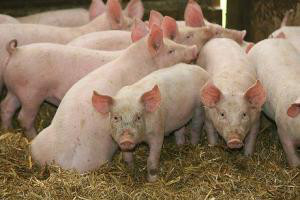 ope and Mexico could be heading to Japan, the world’s largest pork importer, as a hog-virus outbreak is driving up domestic prices, according to the country’s agriculture ministry.
ope and Mexico could be heading to Japan, the world’s largest pork importer, as a hog-virus outbreak is driving up domestic prices, according to the country’s agriculture ministry.Production in Japan may fall as much as 5 per cent from October to December, pushing up prices and weakening demand for local pork, Kenji Morita, director at the ministry’s meat and egg division, said in Tokyo. That’s increasing demand for cheaper imports, he said.
Japan has discovered 1.17 million cases of porcine epidemic diarrhoea in 805 farms across 38 prefectures since it confirmed the latest outbreak in October. As many as 343,070 piglets have died, a record number of fatalities from the disease, Yukitake Okamura, at the ministry’s animal health division, said by phone.
The first case in the current crisis was found in the southern island of Okinawa on 1 October. The virus spread to Kagoshima and Miyazaki prefectures in December, the two biggest growers of hogs. The US, Canada, South Korea and Taiwan have also reported similar outbreaks.
Lean hog futures on the Chicago Mercantile Exchange have climbed 36 per cent this year and traded at $1.16 a pound at 3.31 p.m. in Tokyo.
Japanese farmers raised a total of 9.54 million pigs as of 1 February, according the ministry’s survey, released 1 July. Kagoshima is Japan’s biggest pork-producing prefecture, representing 14 per cent of the total Japanese herd. Miyazaki is the second-largest producer, with an 8.8-per-cent share.
Japan bought 1.24 million metric tonnes of pork last year, representing 18 per cent of global purchases, according to the US Department of Agriculture. The US is the biggest exporter, at 2.29 million tonnes in 2013.
Pork imports by Japan in the first five months of this year gained 7.7 per cent to 331,203 tonnes from a year earlier, according to data from its agriculture ministry. Japanese demand is shifting to imported meat because of the outbreak, said Makiko Tsugata, an analyst at Market Risk Advisory Co., a researcher in Tokyo.





